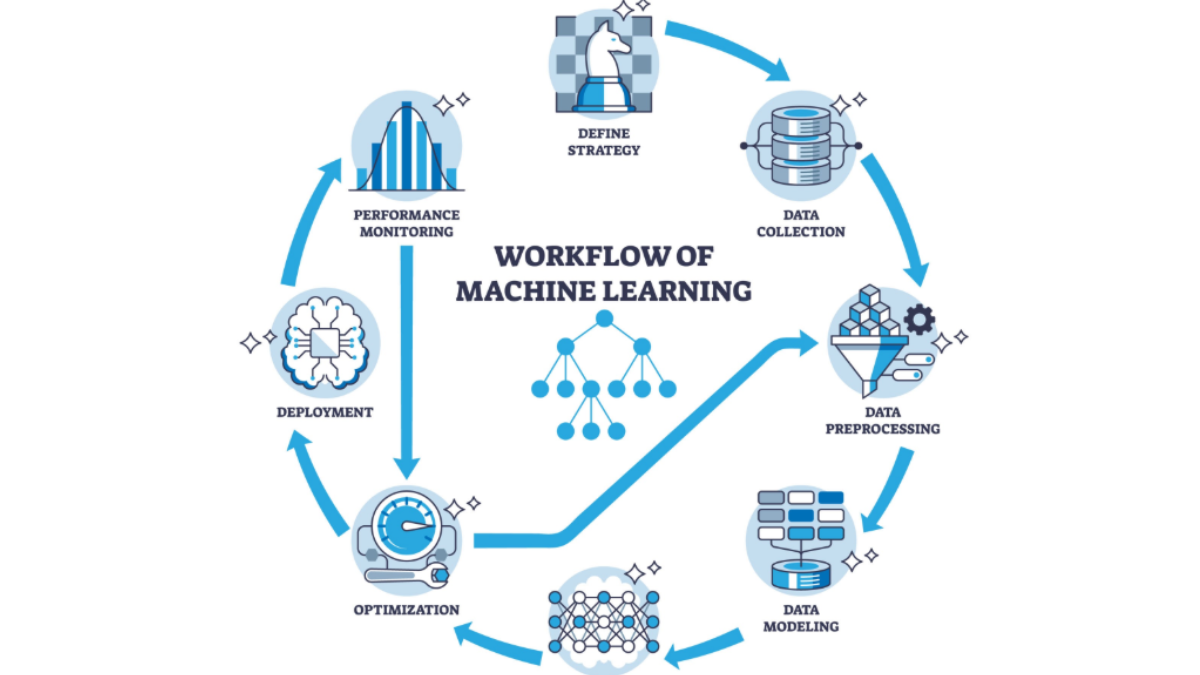Machine Learning Engineer: Machine learning engineering is an incredibly exciting and impactful career path, offering the chance to work on challenging problems and create real-world value. It is an artificial intelligence-focused subfield in computer science. The foundation of machine learning is creating algorithms that can analyze and learn from data, simulating human learning processes to gradually increase accuracy. From your smartphone's facial recognition to advanced video surveillance systems, this technology is everywhere.
Beyond technology aimed at consumers, it's also a potent instrument for companies looking to understand consumer behavior. To provide highly focused ads and individualized product recommendations, businesses like Meta and Amazon utilize machine learning to examine customer data, including likes, posts, and past purchases. Machine learning is a crucial component of contemporary marketing and e-commerce operations because of its capacity to comprehend and forecast consumer trends.
Also Check:
MEXT Scholarship 2025: Eligibility, Criteria and Application Process
Engineering Skills That Will Matter Most for 2030 Careers
Commonwealth Scholarships 2025: Eligibility, Benefits and Application Process
Oxford Scholarship 2026 Open for International Students: Eligibility, Benefits & Application Details
Top 10 Best Government Engineering Colleges in India 2025: NIRF Ranking, Courses & Fees
Chevening Scholarship 2026: Eligibility, Benefits, Application Process & Important Details
How to become a machine learning engineer?
A combination of solid computer science foundations and specific machine learning expertise is needed to become a machine learning engineer. This is a detailed road map to help you.

Step 1: Learn the Fundamentals
Establish a strong foundation in fundamental technical areas first.
- Programming: Learn how to use Python. Its vast libraries and frameworks make it the industry standard.
- Mathematics: It is essential to have a solid understanding of statistics, calculus, and linear algebra. These serve as the foundation for comprehending the operation of machine learning algorithms.
- Study data structures, algorithms, and the fundamentals of software engineering in computer science. This guarantees that you can develop scalable and effective programming.
Step 2: Study the Theory and Practice of Machine Learning
After mastering the foundations, delve into machine learning.
- Fundamental Ideas: Let's start with the fundamentals: reinforcement learning, supervised versus unsupervised learning, and model evaluation metrics like recall, accuracy, and precision.
- Algorithms: Study fundamental algorithms such as linear regression, logistic regression, decision trees, and clustering.
- Frameworks & Libraries: Use these vital resources firsthand. Traditional machine learning is ideal for Scikit-learn. Learn PyTorch or TensorFlow for deep learning.
Step 3: Create a Portfolio
Theory is insufficient; you must use real-world tasks to show off your abilities.
- Start with datasets: Make use of open datasets from sites such as the UCI Machine Learning Repository or Kaggle.
- Create whole projects rather than only training a model. Create a comprehensive project that incorporates feature engineering, data cleansing, model training, and deployment.
- Contribute to open-source: Working with other engineers and gaining expertise are two excellent benefits of taking part in open-source initiatives.
Step 4: Specialize and Advance
Pick a niche to concentrate on because the field is broad.
- Specialized Fields: Take into account focusing on fields such as computer vision, reinforcement learning, or natural language processing (NLP).
- Advanced Topics: Examine more intricate subjects including transformers, generative artificial intelligence, and neural networks.
- Keep Up: The field is changing quickly. To keep your skills up to date, read research papers, go to conferences, and engage in online groups.
What does a machine learning engineer do?

Researching, developing, and maintaining AI systems is the responsibility of a machine learning engineer, a crucial member of a data science team. Their main responsibility is to transform data scientists' models into scalable, production-ready applications. This calls for a solid grasp of software engineering concepts as well as machine learning algorithms.
Implementing machine learning algorithms, creating and constructing complete AI systems, and carrying out tests and experiments to validate and enhance preexisting models are just a few of the varied daily responsibilities of a machine learning engineer. In order to extract insights from data, they also conduct statistical analysis.
Working together with data scientists to comprehend model needs and with other engineers to guarantee the smooth deployment and operation of AI systems makes communication an essential aspect of the job. For any company using AI, this position is essential because it combines theoretical understanding with real-world engineering.
Also Read:
Top IIT Colleges That Offer Data Science Courses to Learn Online in 2025
Best Free AI Courses for Beginners in 2025
Best Pharmacy Colleges in India 2025 After 12th Offering High Job Placement
To stay updated on current trends, join the Jagran Josh Telegram Community!
